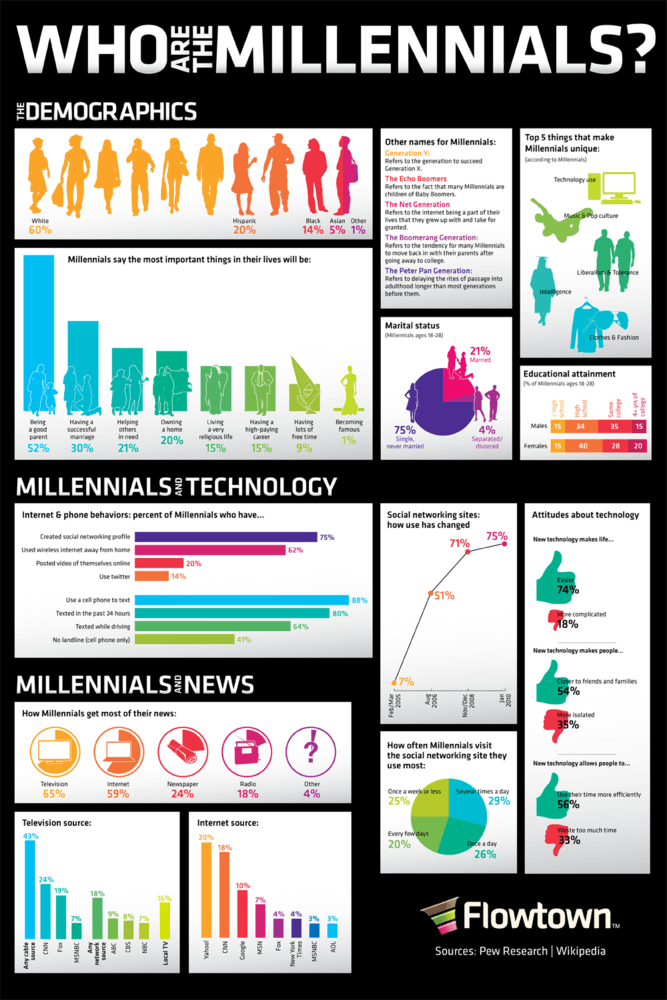In this series, we look at some trends we can expect to see in education in the near future, as well as introducing you to some of the influential people helping revolutionize education.
A recent article at facultyfocus.com gives some interesting insight into the learning preferences of Millennials, the generation born between 1981 and 1999 (approximately). Known by an assortment of other labels, like Digital Natives, Generation Y, and Generation Next, these are the current crop of 7th graders through college students, and they prefer a different sort of approach from their parents’ generation when it comes to education. This study by Dr. Christy Price identifies the 5 R’s in a Millennial’s ideal learning environment. According to Price, these students want:
- Research-based methods: Research suggests Millennials prefer a variety of active learning methods. When they are not interested in something, their attention quickly shifts elsewhere. Interestingly, many of the components of their ideal learning environment- less lecture, use of multimedia, collaborating with peers are some of the same techniques research has shown to be effective, Price said.
- Relevance: Millennials have grown up being able to Google anything they want to know, therefore they do not typically value information for information’s sake. As a result, the professor’s role is shifting from disseminating information to helping students apply the information. One of the greatest challenges for teachers is to connect course content to the current culture and make learning outcomes and activities relevant, Price said.
- Rationale: Unlike Boomers who were raised in a more authoritarian manner in which they more readily accept the chain of command, Millennials were raised in a non-authoritarian manner and are more likely to comply with course policies when teachers provide them with a rationale for specific policies and assignments.
- Relaxed: Millennials prefer a less formal learning environment in which they can informally interact with the professor and one another. In interviews with students, the term laid backwas used repeatedly.
- Rapport: Millennials are extremely relational. They are more central to their parents’ lives than previous generations and are used to having the adults in their lives show great interest in them. They appreciate it when professors show that same interest, and they seem to be more willing to pursue learning outcomes when instructors connect with them on a personal level.
In short, whether learning takes place online, in a brick and mortar setting, or both, today’s students want multimedia-rich, collaborative learning that is meaningful and applicable to their lives. They want a teacher they can relate to and connect with in an informal, relaxed setting, not a lecturer.
Some might argue that the kind of relationships and rapport that these students value can’t be built in an online setting. However, this generation is more comfortable than ever connecting with others in an online setting, as evidenced by the 80% of teens who use social networks. While relationships built online are different from those built face-to-face, they are still valuable. Web 2.0 tools make collaboration easier than ever and using technology in school is relevant to kids who will almost certainly need to be comfortable with computers and online work in their future professions.
As we prepare students for jobs and industries that don’t even exist yet, it’s more important than ever that we engage this generation and ready them for the future, whatever that might look like.
Related Links
Techsifter: Who Are the Millenials Infographic
Pew Research Center: The Millennials: Confident. Connected. Open to Change.






















































































































